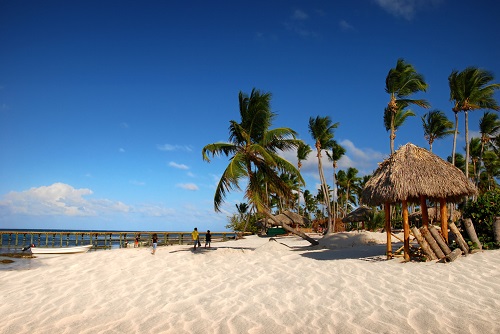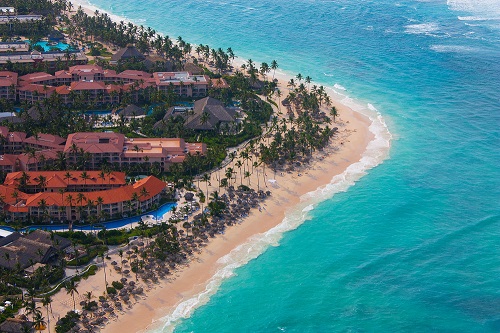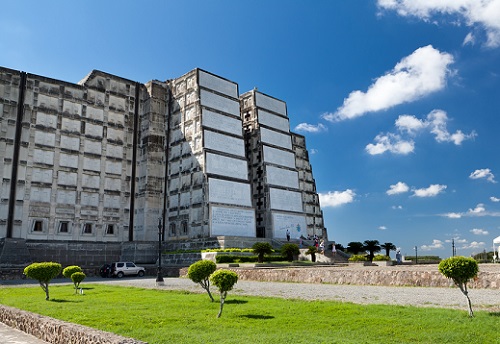The Dominican Republic is popular amongst adventurous expats seeking employment. It is a beautiful location on the island of Hispaniola, and offers opportunities for different kinds of work. The Republic operates a number of Free Trade Zones, in which expats can either set up their own businesses or work for an employer. These Free Zones operate 74 industrial parks, which are home to 705 companies. Secondment from your existing employer, if they have a base in the Dominican Republic, is also a possibility. Several multinationals are based there, including Canadian mining companies and the World Bank. Teaching and working in the hospitality industry are also options.
However, expats aspiring to work in the region should note that this can be a challenging working environment. Although the Republic is comparatively prosperous compared to its neighbours, it has a high rate of poverty and unemployment, and working conditions outside urban centres can be tough. Wages are also low, so if you’re looking to take up employment, it may be more for the experience than the salary. Be aware, too, that the region is prone to climate shocks.
What are the legal requirements for foreign employees?
You can apply for a temporary work visa, valid for one year, called a Carnet de permiso de trabajador con validez de un año. To do this, you/your employer will need to submit the following documents to the Department of Immigration:
• your passport (valid for 6 months)
• visa application form
• a medical certificate
• visa application letter – this must include your name, nationality, place of residence, current occupation and your plans when you enter the country, and should be addressed to the Ministry of Foreign Affairs
• proof of funds, such as bank statements
• one 30mm x 30mm photo, stamped to show the date it was taken (this cannot be more than 6 months old)
• evidence that the place of work you will be joining in the Dominican Republic is registered with the Integrated System of Labour Registration (Sistema Integrado de Registro Laborales (SIRLA)). The place of work must also comply with Article 135 of the Dominican Labour Code on labour nationalisation
• an offer of work which shows you will be contracted for a year
• criminal record check
• your birth certificate (original) – this needs to be legalised and translated
• receipt of payment made to the Dominican Republic Consulate
Once on the ground, you will need to visit the General Directorate of Migration in Santo Domingo within 15 days of your arrival and complete the visa process. Immigration will need copies of the following:
• a medical certification to state you are in good health, and a receipt for payment
• original passport, plus three copies
• birth certificate, legalised and translated
• work contract
• two completed documents known as Application Form for Employers (Formulario de solicitud para empleadores) and Application Form for Workers (Formulario de solicitud para trabajadores)
• a criminal record check
• four passport photos
• a document showing your workplace insurance
You can also apply for a business visa that allows you multiple entries for a limited period. For example, if you are working on a contract with a company based in the Dominican Republic, this would allow you to travel back and forth.
However, if you are intending to spend more than two months consecutively in the Republic, you will need to apply for a residence permit (visa de residencia).

Are any skills in particular demand?
The Dominican Republic suffers from a general skills shortage and lack of education.
Teaching is a popular choice among expats, particularly TEFL, although salaries are low compared to other countries.
There is also work available in the construction industry, in nursing and medicine, and in the tourism and hospitality sectors.
It will be helpful if you speak at least basic Spanish.
What are typical working hours and annual holiday entitlement?
The working week is typically 40 hours: eight hours spread over a five-day week (Monday to Friday). Business hours range, but are usually sometime between 7 a.m. and 9 p.m.
You will be entitled to annual leave after one year of employment. Employees with less than five years in the company have the right to take 14 working days as annual leave, while those with more than five years will be entitled to 18 working days.
If you become pregnant, you are entitled to paid maternity leave during the six weeks that precede the birth and the six weeks that follow it.
Wages are typically low in the Dominican Republic, although you can expect to earn more as an expat, depending on your sector. The minimum wage is currently RD$10,000 (US$200) per month, but is due to rise by around 14%.
Can my spouse work?
Your spouse will need a separate work visa if they wish to take up employment, and they will also need to apply for a residence permit.
Are speculative applications to companies common?
You can approach companies in the region directly.
What is the best method of finding a job?
There are a number of online job boards and recruitment agencies that cover the Dominican Republic, including several for TEFL teaching work.

What is the recommended format for CVs/resumes and covering letters?
It is advisable to have your CV/resume translated into Spanish, the official language of the country, if you are not applying to an English-speaking multinational.
Which questions are illegal / can be asked in an interview?
The Dominican Republic is not yet up to speed with Western nations in terms of human rights, and there are reports of discrimination against those with lower incomes, people with disabilities, people of Haitian descent, women, and members of the lesbian, gay, bisexual, transgender and intersex community.
Qualifications and training
If you are applying to a local company, you will need to have your qualifications translated into Spanish and you will also need to get them notarised. The immigration authorities may insist that this is done through an approved authority.

